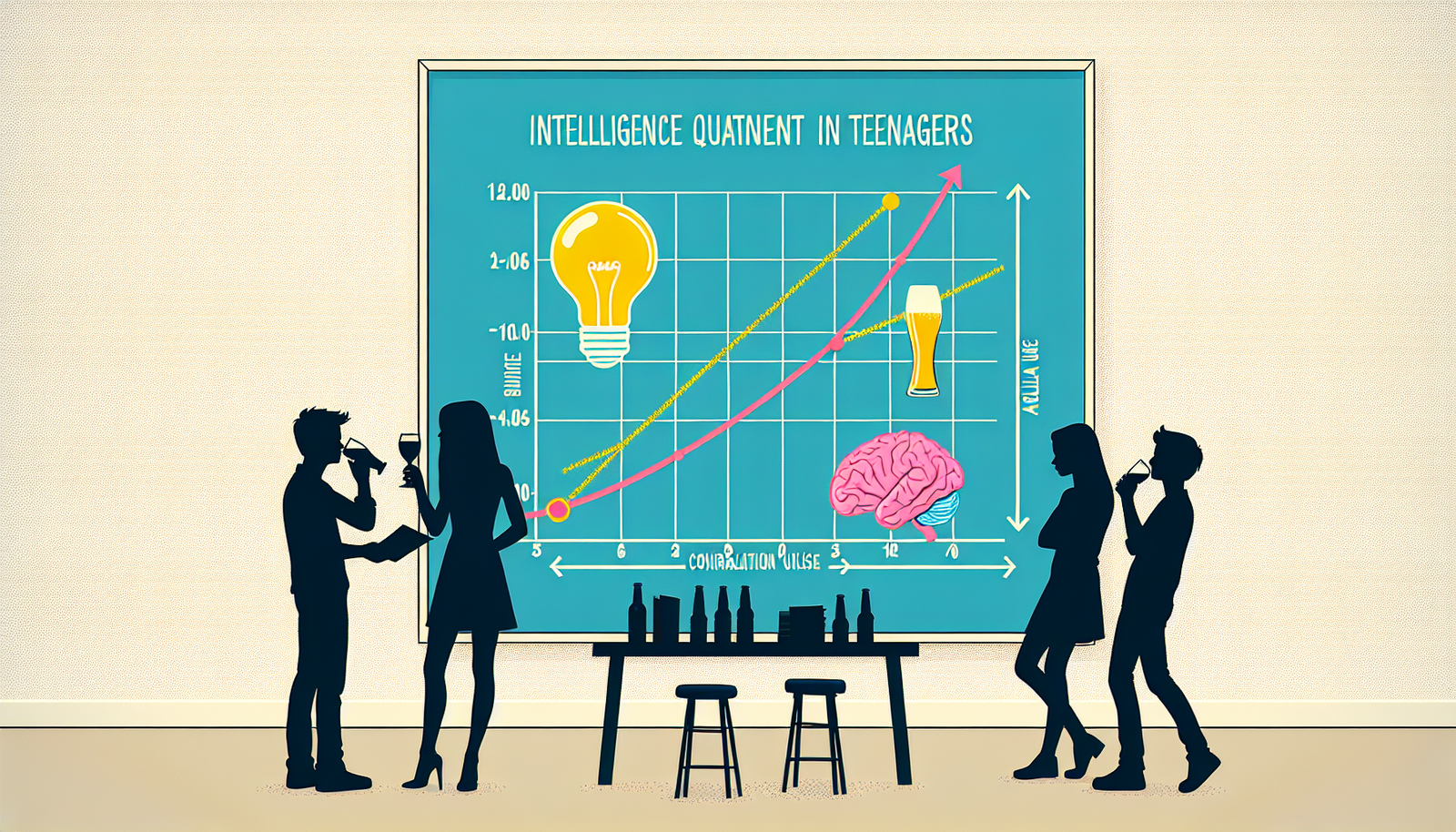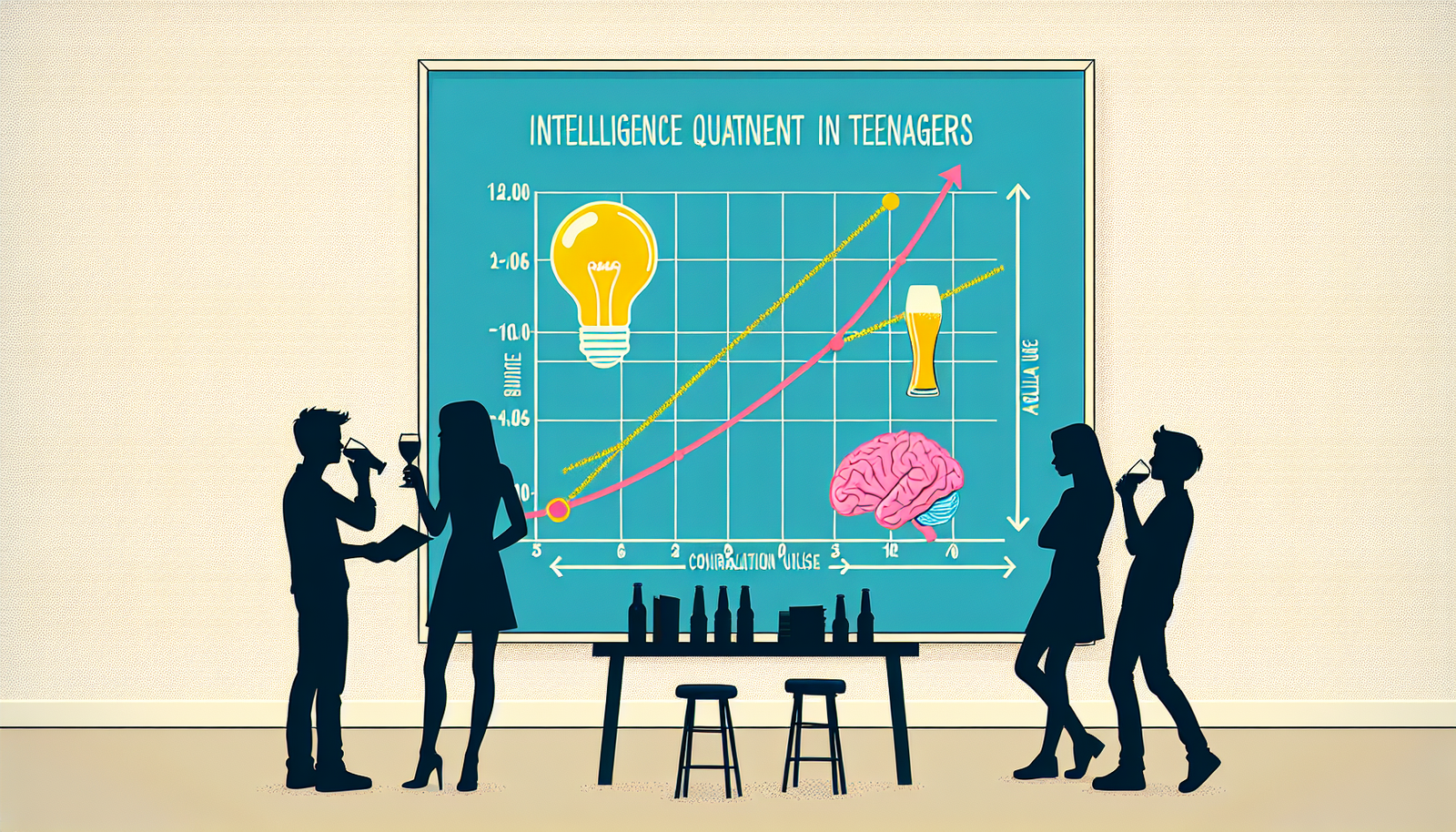
“`html
Summary: A recent study reveals a surprising connection between high school intelligence quotients (IQ) and later alcohol consumption habits, suggesting that students with higher IQs may be more prone to moderate or heavy drinking as adults.
The Study’s Foundation
Researchers from UT Southwestern Medical Center explored this intriguing correlation in a study published in the journal Alcohol and Alcoholism. They analyzed data from over 10,000 high school seniors part of the Wisconsin Longitudinal Study, which kicked off in 1957. This group, mostly individuals born around 1939, was largely white and non-Hispanic. The researchers narrowed their focus to 8,254 participants who later shared their drinking habits at ages 53 and 65, specifically in 1992 and 2004.
Participants were categorized based on their self-reported drinking levels. Moderate drinkers included women who had between one and 29 drinks each month and men who had one to 59, while heavy drinkers exceeded 30 drinks for women and 60 for men. Interestingly, those with higher IQs were less likely to binge drink, defined as having five or more drinks on a single occasion.
Findings and Implications
The results painted a fascinating picture. For every one-point increase in IQ, the odds of being a moderate or heavy drinker rose by 1.6%. This raises questions about how intelligence interacts with one’s environment to impact drinking habits. E. Sherwood Brown, M.D., Ph.D., M.B.A., a senior author of the study, noted, “We’re not saying that your IQ in high school controls your destiny. But IQ levels could lead to intervening social factors that influence drinking, and it’s an important mechanism to explore.”
Another important factor was income. Higher IQs often equated to more demanding careers, which brought increased stress and greater opportunities for social drinking. This could potentially explain the pathway from intelligence to alcohol consumption.
Interestingly, the study also highlighted gender differences. Men reported binge-drinking more frequently than women, reinforcing previous observations that men tend to engage in riskier drinking behavior.
As the researchers point out, despite the valuable insights this study provides, it has limitations. The demographic was quite homogeneous, with 99% of participants identifying as white non-Hispanic. Future research is needed to see if these trends hold across different races and ethnicities.
Broader Context and Future Directions
The implications of this research extend beyond mere academic interest. By looking at how IQ and socioeconomic factors intermingle with drinking habits, we can better inform public health strategies aimed at tackling alcohol-related issues. With alcohol consumption on the rise across various demographics, identifying risk factors for drinking behavior is increasingly vital.
The findings also set the stage for future studies examining how cognitive abilities sway lifestyle choices, potentially leading to targeted interventions for at-risk groups. As noted by the authors, “While it’s not possible to capture all the underlying mechanisms that mediate the relationship between drinking and IQ, we know that income partially explains the pathway between the two.”
Engaging with the complexities of personality traits, intelligence, and background could significantly shape our understanding of drinking behaviors and enhance treatment and prevention efforts in behavioral health. Additional research, particularly involving diverse populations, is essential for gaining a deeper understanding of the factors at play.
As we face growing concerns about alcohol consumption and its associated health risks—such as high blood pressure, cancer, and strokes—studies like this add to our understanding. By illuminating the links between cognitive ability and drinking habits, this research could guide future efforts to address alcohol-related issues in upcoming generations.
Read more about UT Southwestern’s reporting on this study here.
“`

